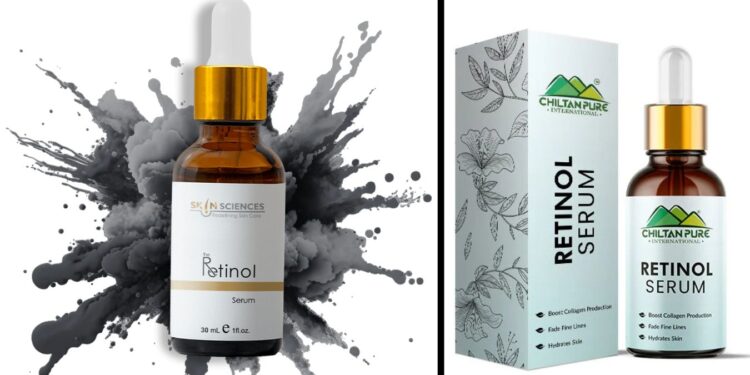Serum Retinol, a form of Vitamin A, has been a cornerstone in skincare for decades. But recently, serum retinol has emerged as one of the most powerful and sought-after skincare treatments on the market. Whether you’re trying to reduce the appearance of fine lines, tackle acne, or improve your overall skin texture, serum retinol can be an indispensable addition to your skincare routine. This article will explore everything you need to know about serum retinol—its benefits, how it works, the best ways to incorporate it into your skincare regimen, and expert recommendations to get the most out of it in 2024.
| Attribute | Details |
|---|---|
| Product Name | Serum Retinol |
| Main Ingredient | Retinol (Vitamin A) |
| Formulation Type | Serum (Lightweight, fast-absorbing) |
| Key Benefits | Reduces fine lines, improves skin texture, treats acne, fades hyperpigmentation |
| How It Works | Stimulates collagen production, accelerates skin cell turnover |
| Best For | Anti-aging, acne-prone skin, hyperpigmentation, uneven skin tone |
| Skin Types | Oily, dry, sensitive, normal, combination |
| Recommended Usage | Evening (before bed), 2-3 times a week to start, gradually increasing |
| Common Side Effects | Dryness, irritation, peeling, redness |
| Pairs Well With | Hyaluronic acid, vitamin C, soothing oils (e.g., argan, rosehip) |
| Frequency of Use | 2-3 times a week initially, gradually increasing to daily |
| Suitable Age Range | 25+ (for anti-aging), teens+ (for acne-prone skin) |
| Key Precautions | Avoid sun exposure, apply sunscreen, start with lower concentrations |
The Science Behind Serum Retinol
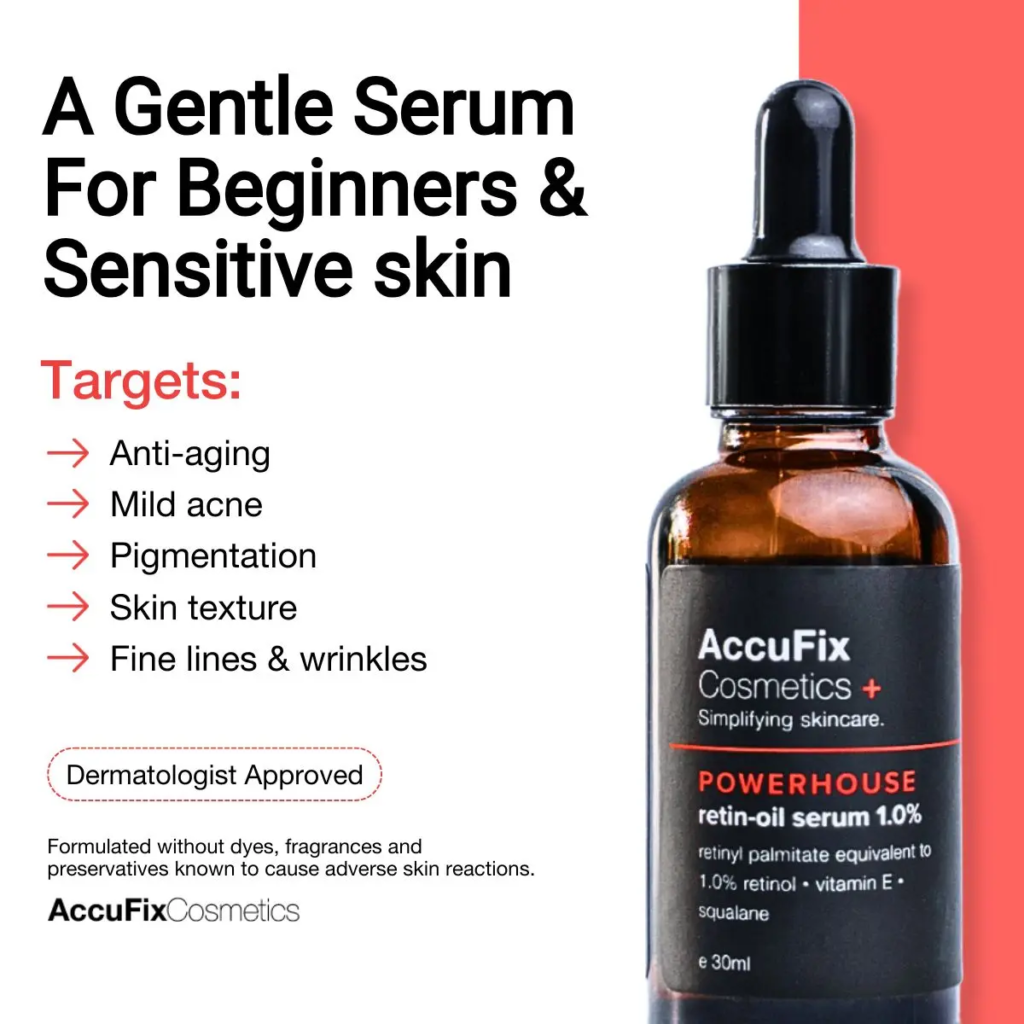
Serum retinol is a concentrated form of Vitamin A, known for its remarkable ability to enhance skin cell turnover. It works by stimulating the production of new skin cells while shedding the older, damaged ones. This rapid cell turnover can help your skin look smoother, more radiant, and younger over time. Additionally, retinol has anti-inflammatory properties that can help calm and reduce skin irritation, making it an ideal ingredient for those with acne-prone skin. The effectiveness of serum retinol lies in its ability to penetrate deeply into the skin, making it much more potent than standard retinol creams or lotions.
When applied to the skin, retinol increases collagen production, which is essential for maintaining skin elasticity and reducing the appearance of fine lines and wrinkles. It also prevents the thickening of the outer skin layer, keeping it soft and supple. This dual action—accelerating cell turnover while simultaneously boosting collagen—makes retinol a game-changer in the fight against aging.
Why Serum Retinol Is Superior to Other Retinol Products
The primary reason serum retinol is often preferred over other forms of retinol is its lightweight, fast-absorbing formula. Serums are designed to penetrate the skin more deeply than creams or lotions, delivering active ingredients like retinol more effectively. This deep penetration allows serum retinol to address skin issues at their source—at the cellular level. Additionally, serum formulations often contain higher concentrations of active ingredients, which makes them more potent than other retinol products.
Another advantage of serum retinol is its ability to be paired with other skincare products. Most serums are designed to work harmoniously with moisturizers, sunscreens, and other serums, offering a tailored skincare solution. Unlike heavier creams, serums are less likely to clog pores, making them ideal for those with oily or acne-prone skin. In short, if you’re looking to get the maximum benefit from retinol, using a serum formulation is an excellent choice.
The Numerous Benefits of Using Serum Retinol
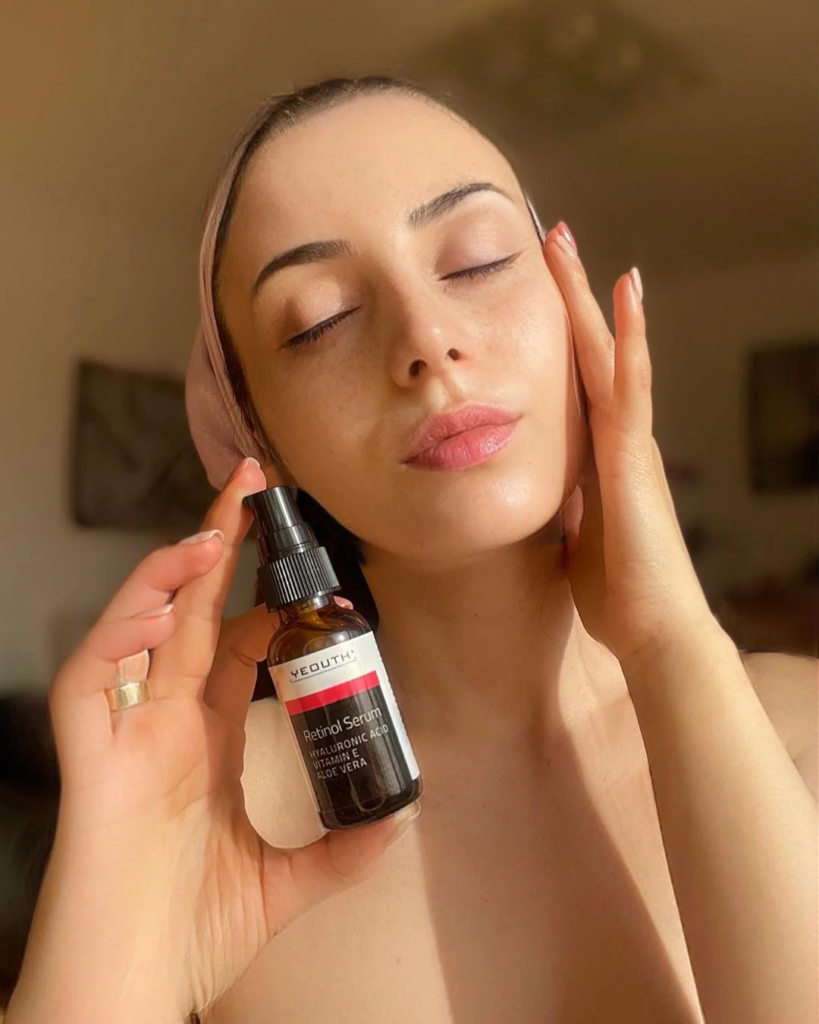
The benefits of serum retinol are wide-ranging and scientifically backed. For one, it is one of the most effective ingredients for fighting signs of aging. As mentioned earlier, retinol boosts collagen production, which helps keep the skin plump and firm. Over time, this can reduce the appearance of fine lines, wrinkles, and sagging, creating a more youthful and refreshed appearance.
In addition to its anti-aging benefits, serum retinol is also highly effective in treating acne. It helps to unclog pores, prevent the buildup of dead skin cells, and reduce inflammation, which are all factors that contribute to acne outbreaks. For people with acne-prone skin, using a serum retinol can help manage and prevent future breakouts while also clearing up existing blemishes.
Serum retinol is also a powerful tool in the fight against hyperpigmentation. The accelerated skin cell turnover helps to fade dark spots, sun damage, and acne scars, revealing a more even skin tone. If you struggle with uneven pigmentation or post-acne marks, incorporating serum retinol into your skincare routine can help address these concerns.
How to Incorporate Serum Retinol Into Your Skincare Routine
To make the most of serum retinol, it’s crucial to integrate it properly into your skincare routine. The first step is to start slow. Retinol is potent and can cause skin irritation, especially if you’re new to it. Begin by using a serum with a lower concentration, such as 0.25% or 0.5%, and apply it just two to three times a week. Gradually increase the frequency as your skin builds tolerance. Over time, you can increase the strength of the serum and the frequency of use if your skin responds well.
Serum retinol should always be applied to clean, dry skin, typically in the evening before bed. After cleansing your face, apply a thin layer of the serum to your face, avoiding the sensitive areas around your eyes and mouth. Follow with a rich moisturizer to lock in hydration and minimize any potential dryness or irritation. It’s important to note that retinol makes your skin more susceptible to sun damage, so always apply a broad-spectrum sunscreen with at least SPF 30 the morning after using serum retinol.
For those with sensitive skin, you might want to incorporate serum retinol into your routine by layering it with a soothing, hydrating serum or oil. This can help buffer the potency of retinol while still allowing you to reap its benefits. However, be mindful of not layering it with other strong exfoliants, such as AHAs or BHAs, which can increase irritation.
The Best Pairings for Serum Retinol
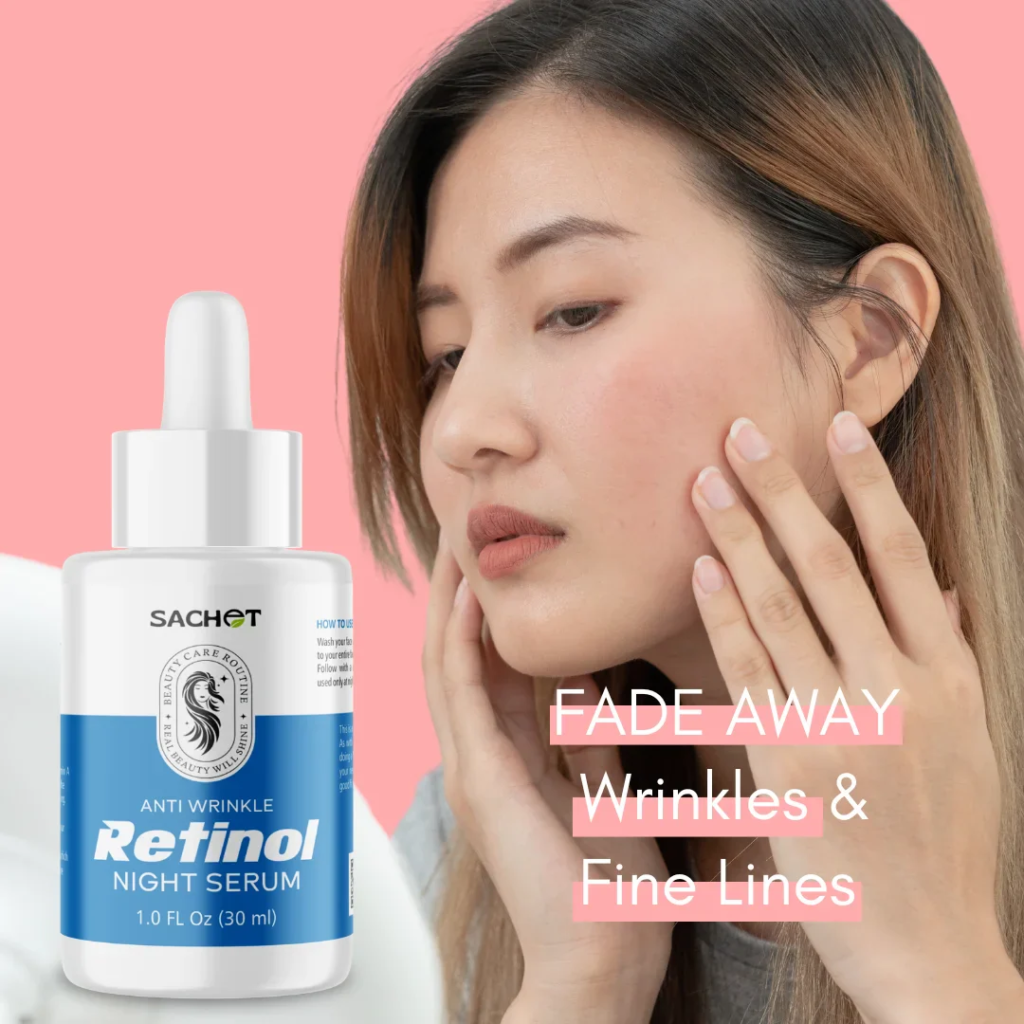
While serum retinol is powerful on its own, it can also be enhanced when paired with other skincare ingredients that support its effects. One of the best companions to serum retinol is hyaluronic acid, which provides intense hydration and helps replenish moisture in the skin. Since retinol can cause dryness, a serum with hyaluronic acid or glycerin can help keep your skin plump and smooth.
Another beneficial pairing is vitamin C, especially in the morning. Vitamin C is an antioxidant that helps brighten the skin and provides protection from environmental stressors like pollution and UV radiation. While retinol should be used in the evening, you can use vitamin C in your morning routine for an added glow.
If you have dry or sensitive skin, incorporating nourishing oils, such as argan or rosehip oil, can help restore moisture and promote skin barrier repair. These oils are rich in essential fatty acids that work alongside serum retinol to soothe and hydrate the skin.
Potential Side Effects and How to Manage Them
While serum retinol offers numerous benefits, it can also come with some side effects, especially for those with sensitive skin. The most common issues include dryness, redness, peeling, or irritation. These side effects are typically a sign that your skin is adjusting to retinol, but they can be minimized with proper usage.
If you experience excessive dryness or irritation, consider reducing the frequency of use or opting for a lower concentration serum. You can also try applying serum retinol every other night or alternating with other gentle products to give your skin a break. Additionally, always follow up with a moisturizing cream or oil to keep the skin hydrated and prevent flakiness.
In rare cases, some individuals may experience more severe reactions, such as blistering or swelling. If this occurs, discontinue use and consult a dermatologist. It’s always a good idea to perform a patch test before introducing a new product to your routine to ensure your skin doesn’t react negatively.
Selecting the Right Serum Retinol for Your Skin Type
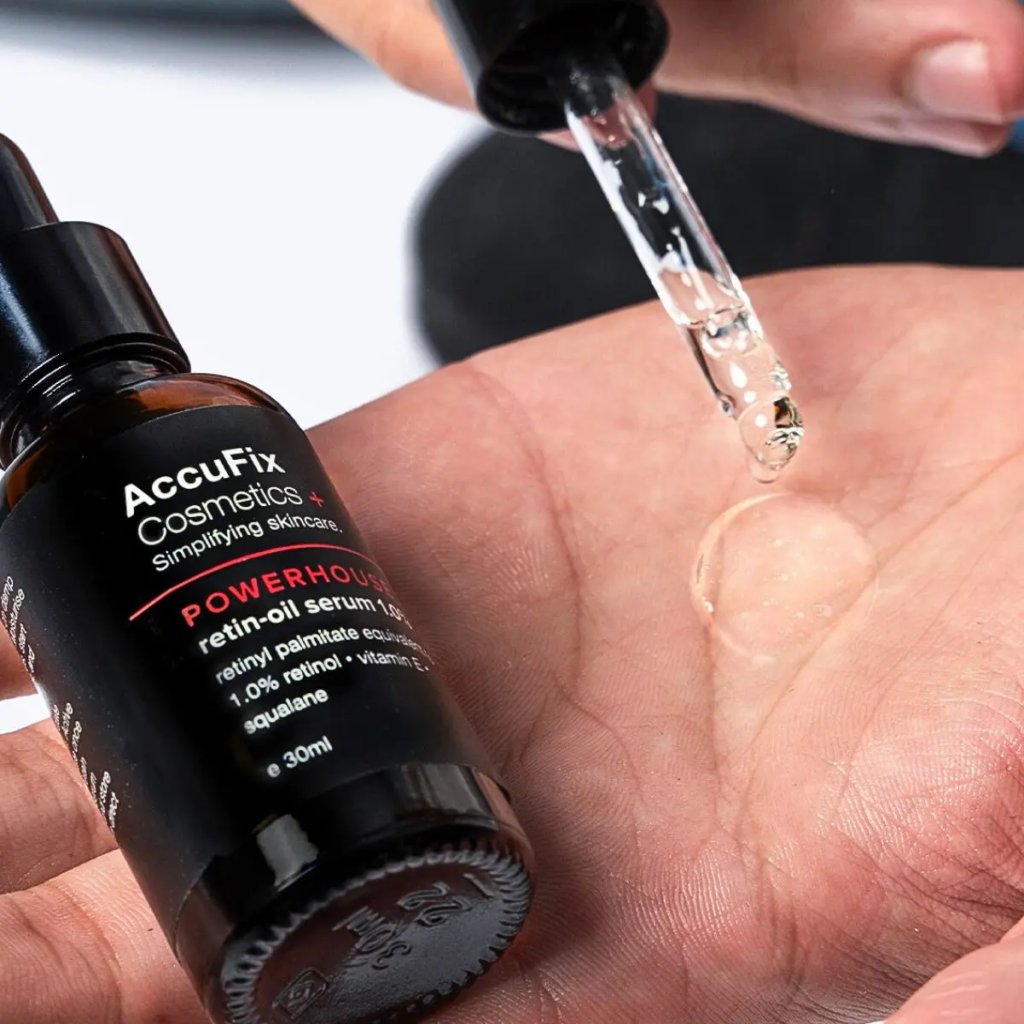
Choosing the right serum retinol for your skin type is essential for achieving optimal results without irritation. For individuals with oily or acne-prone skin, a lightweight, oil-free serum retinol may be the best option. These formulas are designed to absorb quickly and prevent clogged pores, which can exacerbate acne. Look for serums that contain additional acne-fighting ingredients like salicylic acid or niacinamide to enhance the product’s efficacy.
If you have dry or sensitive skin, opt for a serum retinol that includes hydrating and calming ingredients. Look for serums that combine retinol with soothing agents like ceramides, peptides, or green tea extract. These ingredients can help counteract the drying effects of retinol and maintain your skin’s moisture balance.
For those with normal or combination skin, you have more flexibility in choosing a serum. You can experiment with different formulations to find one that suits your needs. Generally, a mid-range retinol serum (0.5% to 1%) works well for most skin types, providing the right balance of effectiveness and gentleness.
The Importance of Consistency in Using Serum Retinol
Like any skincare product, consistency is key when using serum retinol. It can take anywhere from four to six weeks to start seeing visible improvements in your skin, with full results appearing after three to six months. Patience is essential—retinol works gradually to improve the skin’s texture, and immediate results are rare. However, over time, you’ll notice smoother, more even skin, with fewer fine lines, wrinkles, and blemishes.
It’s important not to be discouraged by minor irritation or slow progress. Retinol is a long-term investment in your skin’s health, and the results are well worth the wait. Stick with your routine, and with consistent use, you’ll begin to see significant improvements in the texture, tone, and overall appearance of your skin.
Conclusion: Is Serum Retinol Right for You?
Serum retinol is a powerful and versatile ingredient that can significantly improve your skin’s appearance and health. From reducing the signs of aging to clearing up acne, serum retinol offers a range of benefits for all skin types. However, it’s crucial to use it correctly and to give your skin time to adjust. With proper usage and consistency, serum retinol can be a game-changer in your skincare routine, leaving you with smoother, more radiant skin. If you haven’t already, consider adding serum retinol to your regimen in 2024 to unlock its full potential.
Frequently Asked Questions (FAQ)
1. Can I use serum retinol every day?
- You can use serum retinol daily, but it’s recommended to start slowly to avoid irritation, especially if you’re new to retinol. Gradually increase the frequency as your skin builds tolerance.
2. What should I do if my skin gets irritated?
- If you experience irritation, reduce the frequency of use or opt for a lower concentration serum. You can also try using hydrating ingredients like hyaluronic acid to soothe the skin.
3. Can I use serum retinol during the day?
- It’s best to use serum retinol at night because it can increase skin sensitivity to sunlight. Always apply sunscreen during the day to protect your skin.
4. How long does it take to see results from serum retinol?
- You may start seeing results in about 4 to 6 weeks, with more noticeable improvements after 3 to 6 months.
5. Can I use serum retinol with other skincare products?
- Yes, but avoid mixing it with strong exfoliants like AHAs or BHAs. Pair it with hydrating and soothing ingredients for best results.


